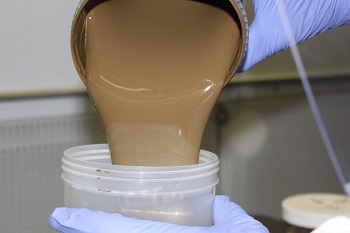Teijin Limited announced today that it has developed the world's first printable electronics material, named NanoGram® Si paste, and related processing technologies, for the local back surface field (L-BSF) photovoltaic (PV) cell capable of high conversion efficiency.

NanoGram® Si paste was developed by NanoGram Corporation, a Teijin company specializing in designing novel nanomaterial technologies. The material and its processing technologies were presented by Teijin at The 75th Japan Society of Applied Physics (JSAP) Autumn Meeting in Sapporo and then jointly with Fraunhofer ISE at EU PVSEC in Amsterdam, both in September.
An L-BSF PV cell has an insultion or passivation layer on its back. An impurity-diffused layer is attached to the back of the electrode and partially underneath the electrode to diffuse impurities such as boron, phosphorus and aluminum by furnacing or lasering. The structure enables the highly efficient collection of solar energy in the substrate silicon wafer.
Teijin invented NanoGram® Si paste after discovering that its particles are highly suited to L-BSF PV cells. The paste contains approximately 20nm-diameter silicon nanoparticles that include impurities such as boron or phosphorus. A high-performance impurity-diffused layer can be formed when NanoGram® Si paste is printed and heated on a silicon wafer.
Teijin also developed its own technologies for screen printing and lasering process of the paste on a silicon wafer, resulting in a further 0.5% increase in the L-BSF PV cell’s conversion efficiency. This effect has been verified using a six-inch PV cell developed together with Fraunhofer ISE.
The PV cell market, which is expected to reach 2.7 trillion JPY by 2020, is seeing an increasing demand for highly conversion-efficient PVs. Cells such as the L-BSF are being actively developed by improving the back electrodes of silicon crystal PVs. Teijin is accelerating its marketing of NanoGram® Si paste to consolidate its early adoption. The company is also working closely with PV cell manufacturers to support their commercial production of highly conversion-efficient PV cells. Teijin is continuing to develop new applications for its NanoGram® Si paste as a printable electronics material for semiconductors.